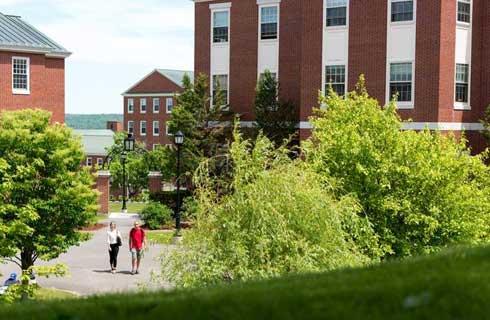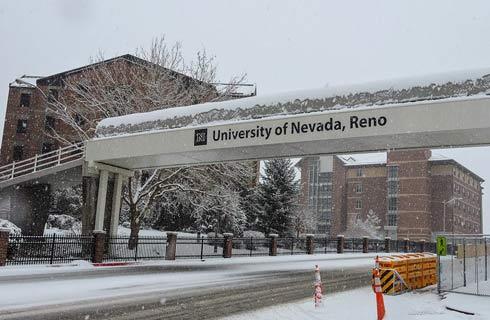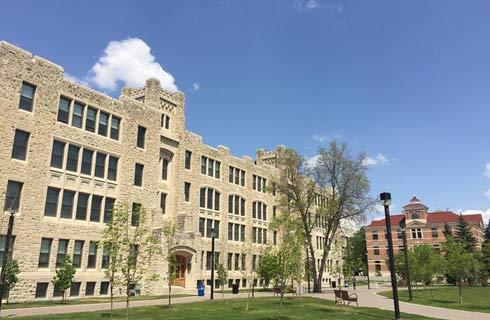理学学士-环境科学
Bachelor of Science - Environmental Science

学历文凭
Bachelor Degree

专业院系
UWA School of Agriculture and Environment

开学时间

课程时长

课程学费

国际学生入学条件
Entry requirements may vary from country to country. Students are required to complete an international academic qualification equivalent to Australian High School (or equivalent).
English language requirements:
IELTS (academic): Overall minimum score of 6.5, no band lower than 6.0
TOEFL Internet-based TOEFL (iBT): an overall score of 82 or above with a minimum score of 22 in writing, 18 in reading, 20 in speaking and 20 in listening
Pearsons Test of English (PTE) (academic): An overall score of 64 with a minimum score of 59 in the speaking and writing sections, and no less than 54 in the other sections
IDP—雅思考试联合主办方

雅思考试总分
6.5
了解更多
雅思考试指南
- 雅思总分:6.5
- 托福网考总分:82
- 托福笔试总分:570
- 其他语言考试:PTE Academic - An overall score of 64 with a minimum score of 59 in the speaking and writing sections and no less than 54 in the listening and reading sections.
CRICOS代码: 068914G
申请截止日期: 请与IDP顾问联系以获取详细信息。
课程简介
Environmental Science assesses the impact of human activity on the global environment and develops scientific, risk-based solutions to help secure a sustainable future. By choosing to major in Environmental Science, you'll help to develop solutions to global environmental issues including climate change, carbon trading, greenhouse gas emissions, water resource management, salinity, deforestation, and others.<br><br>The Environmental Science major encompasses both the biological and the earth sciences. Environmental issues are many and varied so the use of an interdisciplinary approach to problem solving is essential. You'll develop techniques in scientific modelling to achieve practical solutions to these problems. Environmental scientists deal with issues such as climate change, carbon trading, greenhouse gas emissions, water resource management, salinity, land degradation and rehabilitation, flora and fauna, habitat destruction, deforestation, energy and mineral depletion, air and water pollution, soil erosion, and groundwater contamination. It is envisaged there will be up to three overnight field trips (costing up to 500 per student to cover the cost of food and accommodation for around 10 nights).
相关申请
 预科
预科 奖学金
奖学金 实习机会
实习机会 在校学习
在校学习 跨境学习
跨境学习 校园授课-线上开始
校园授课-线上开始 在线/远程学习
在线/远程学习
学校排名

世界排名134
数据源:泰晤士高等教育世界大学排名
关于西澳大学

西澳大学(UWA)是澳大利亚领先的大学之一,其卓越的教学、研究和教员在国际上得到认可。在世界范围内,西澳大学位居全球100强(''QS 2024''),师生比例极好,被《2023年优秀大学指南》评为五星级,在学生需求、学习参与度以及学习资源方面都获得五星评级。选择西澳大学,学生不仅就读于世界排名前100位的大学,获得全球认可的学位,同时也选择了生活在一个有出色就读机会、便于开展职业生涯的城市。西澳大学位于澳大利亚西部繁荣的首府城市珀斯的黄金地段。.主校区有2.5万多名学生,其中有来自100个国家的4000多名国际学生。珀斯是澳大利亚第四大城市,200多万人口来自世界各地和不同的文化背景,拥有强大的经济实力和活力四射的生活方式,是适宜居住、工作和学习的生机之都。珀斯之所以是国际学生就读好选择的原因如下: 在澳大利亚证券交易所(ASX)上市的公司数量最多,珀斯能够提供职业机会 澳大利亚最宜居城市之一(《经济学人智库》) 澳大利亚阳光最充足的首府城市,每天日照时间超过八小时西澳大学(UWA)的珀斯校区拥有最先进的教学和研究设施,是全国最美丽的校园之一。该校在西澳大利亚南岸的奥尔巴尼还有一个校区,同样采用最新技术,为学生提供世界一流的学习环境。该大学拥有许多著名的校友,包括诺贝尔奖获得者,西澳大学(UWA)的毕业生为工作做好了充分准备。这也延伸到了研究领域,该大学在这方面享有很高的声誉,包括与组织和行业的合作。
本校相关课程

卫生专业教育硕士-研究重点
学历文凭
Masters Degree (Coursework)
开学日期
课程费用总额


城市和区域规划硕士-课程
学历文凭
Masters Degree (Coursework)
开学日期
课程费用总额


法医学硕士
学历文凭
Masters Degree (Research)
开学日期
课程费用总额


国际关系研究生文凭
学历文凭
Graduate Diploma
开学日期
课程费用总额


社会工作硕士
学历文凭
Masters Degree (Coursework)
开学日期
课程费用总额


国际关系研究生证书
学历文凭
Graduate Certificate
开学日期
课程费用总额





















 澳大利亚
澳大利亚




